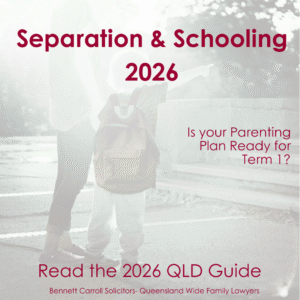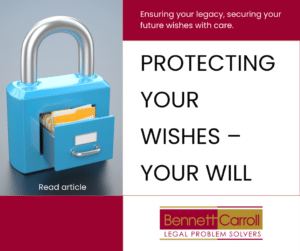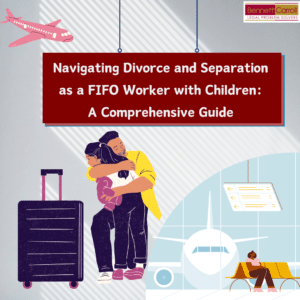In today’s world, blended families are becoming more common, creating unique challenges when it comes to estate planning. Blended families typically include stepchildren, half-siblings, and parents who may have remarried. One important consideration is how to fairly distribute assets while protecting the interests of all family members, including stepchildren.
When it comes to estate planning, making provisions for a blended family requires a thoughtful and well-drafted will. Without proper planning, unintended consequences may arise, such as excluding stepchildren or creating conflict among surviving family members.
What Is a Blended Family?
A blended family, also known as a stepfamily, consists of a couple where one or both partners have children from previous relationships. In such families, stepchildren may have legal relationships with their biological parents but not automatically with their stepparents. This can cause complications in estate planning, as stepchildren are not always treated equally under the law without explicit provisions in the will.
Why Estate Planning Is Crucial for Blended Families
Estate planning for blended families can be more complex than for traditional families due to the number of relationships and legal considerations involved. Common issues that arise include:
- Ensuring biological and stepchildren are treated fairly and according to your wishes.
- Balancing the needs of a current spouse with the children from previous relationships.
- Protecting the interests of a surviving spouse while still leaving something for your biological children.
- Avoiding potential disputes over the division of assets.
Without a well-thought-out will, your estate may be distributed in ways that do not reflect your true intentions, leaving stepchildren without inheritance or even causing family rifts.
Stepchildren and Inheritance in Australia
In Australia, stepchildren, depending upon the specific circumstances of the relationship may or may not have the same automatic inheritance rights as biological or adopted children. It is imperative that blended families have an estate plan so that your estate is inherited by those that you wish to inherit.
If you die without a will (intestate), your estate will be distributed according to Australia’s intestacy laws.
Key Considerations for Blended Families When Drafting a Will
- Name All Beneficiaries Explicitly: Ensure that all beneficiaries, including stepchildren and biological children, are clearly named in your will. Be specific about what each person will inherit.
- Use Testamentary Trusts: Testamentary trusts can be a powerful tool for blended families, allowing you to leave assets to your spouse while ensuring that the remaining estate eventually passes to your children, including stepchildren, as per your instructions.
- Consider Life Interest or Right to Reside: If you want your spouse to continue living in the family home, but eventually want it to pass to your children, you can create a life interest or right to reside clause in your will. This allows your spouse to live in the home for their lifetime, after which the property is passed to your children.
- Review Binding Nominations for Superannuation: In Australia, superannuation is not automatically included in your will. You must make a binding nomination with your super fund if you want your superannuation to be distributed as you wish.
- Communicate Your Wishes Clearly: Open and honest communication with your spouse, children, and stepchildren about your estate planning can help avoid disputes later. Ensure that everyone understands your wishes and how the estate will be divided.
Avoiding Disputes in Blended Families
Disputes over inheritance can be common in blended families, particularly when there are differing expectations or when stepchildren feel they have been unfairly treated. To reduce the risk of conflict, consider the following:
- Create a Will Early: The sooner you draft a will that reflects your current family structure, the better. This prevents legal complications and ensures your wishes are honoured.
- Review and Update Your Will Regularly: Family dynamics can change over time. Make sure to review and update your will after major life events, such as remarriage, the birth of a child, or a change in assets.
- Seek Legal Advice: Consulting an experienced wills and estates lawyer can help ensure that your will complies with Australian law and meets the needs of your blended family. They can provide advice on structuring your will to prevent disputes and ensure fairness.
Conclusion: Protecting Your Blended Family’s Future
Estate planning for blended families requires a careful balance between protecting your spouse and providing for all your children, including stepchildren. By creating a comprehensive will and considering trusts and other legal tools, you can ensure that your assets are distributed according to your wishes, avoiding potential disputes and protecting your loved ones’ futures.
If you’re in a blended family and need assistance drafting your will, our experienced team at Bennett Carroll Solicitors can help you navigate the complexities of estate planning. Contact us today to ensure that your family’s future is secure.

Secure your blended family’s future with expert estate planning. At Bennett Carroll Solicitors, we specialise in wills and estate planning for blended families across Queensland. Protect your stepchildren’s inheritance and ensure your assets are distributed according to your wishes. Contact our experienced wills and estate lawyers today for tailored advice on testamentary trusts, superannuation nominations, and more.
Further Reading on Estate Planning and Blended Families
You can also explore additional articles on our website:
- Do I Need to Update My Will After Separation or Divorce in Queensland?
- Understanding Testamentary Trusts
For more information about estate planning for blended families, you may find these resources helpful:







